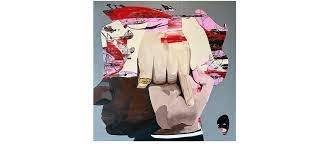Nicholas Whittaker in The Point:
 In their controversial 2013 opus The Undercommons, radicals Fred Moten and Stefano Harney detail the eponymous academic-activist ferment to which they owe their radicality. The undercommons is located in the university—more generally, in the swarm of relations and systems we could call “academia” or “intellectual life”—but is not a physical place; rather, it is a “downlow lowdown maroon community of the university … where the work gets done, where the work gets subverted, where the revolution is still black, still strong.”
In their controversial 2013 opus The Undercommons, radicals Fred Moten and Stefano Harney detail the eponymous academic-activist ferment to which they owe their radicality. The undercommons is located in the university—more generally, in the swarm of relations and systems we could call “academia” or “intellectual life”—but is not a physical place; rather, it is a “downlow lowdown maroon community of the university … where the work gets done, where the work gets subverted, where the revolution is still black, still strong.”
The undercommons is defined both by a particular kind of community and a particular kind of work. Who makes up this community? Those who “steal” from the university: those who do their work while eliding—working alongside, underneath, without much concern or attention to, or with an eye toward gaming—the structures of professionalization, profit-chasing, respectability politics, solipsistic individualism and statism that many see as entrenched within modern academia. The undercommons, in other words, is the set of social relationships that interlinks academics and intellectuals who steal paychecks, lecturing positions, office space and so on in order to do work the university would rather they not do.
What, then, is this work? It is the work Adrian Piper accomplishes when, fed up with the obsessive professionalism and bad faith of the system of academic publishing, she releases her magnum opus for free online, where it circulates to this day. It is the work Edward Said accomplishes when he is photographed throwing a stone across the Israel-Lebanon Blue Line, two years after his documentary detailing the atrocities of Israel’s colonial occupation of Palestine is blacklisted from American broadcasting.
More here.
